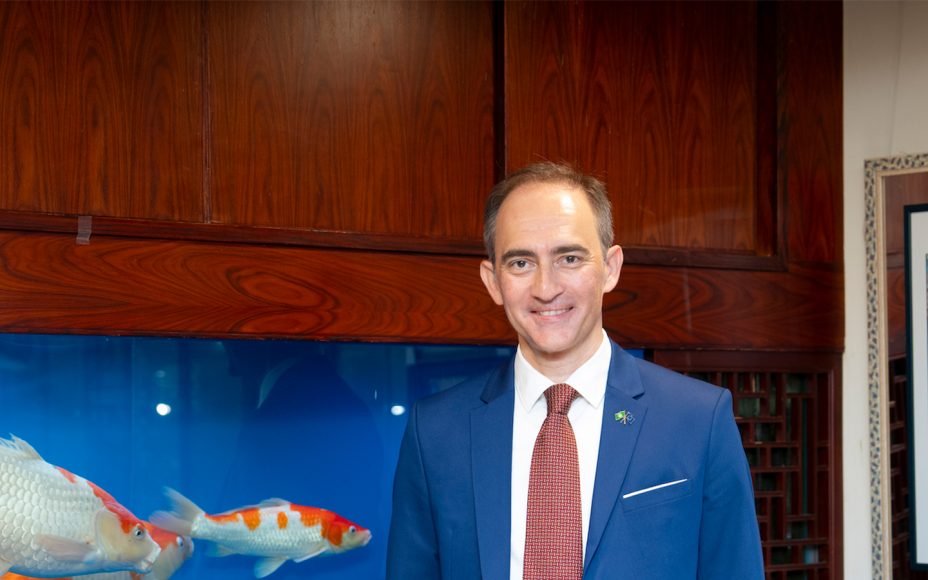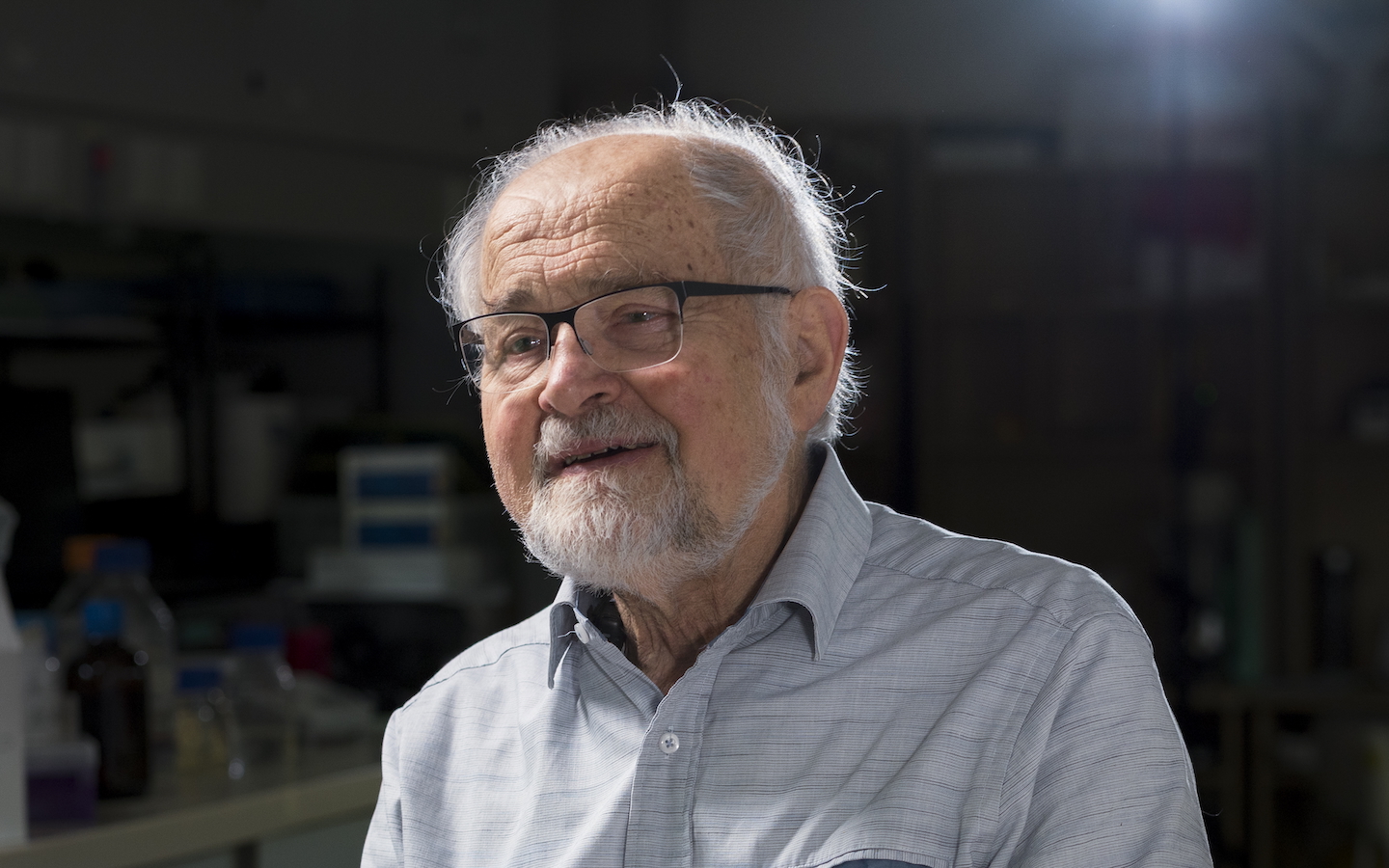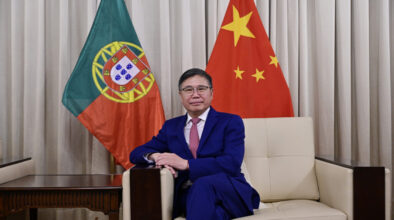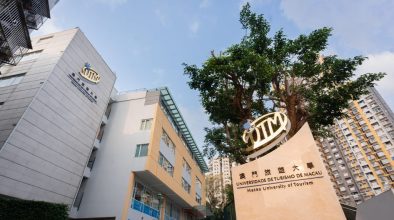Rui Pedro Cunha has a long history in Macao. The Portuguese native spent much of his youth in the city, during the 1980s, when his lawyer father was helping transform its gaming industry.
Cunha went back to Portugal to study engineering, then spent almost two decades working there in telecommunications. He returned to Macao six years ago.
Today, Cunha is the general manager and director at his father’s law firm, C&C Lawyers, and president of the Macau European Chamber of Commerce (MECC). In 2012, the senior Cunha – Rui José –with his son and daughter founded the Rui Cunha Foundation, a non-profit dedicated to developing Macao’s legal system and arts and culture scene. Today, his son also serves as its vice president. Through these three roles, Cunha is making his own mark on Macao.
This interview has been edited for brevity.
What is your connection to Macao?
I grew up in Macao. My family moved here in 1981, and I stayed from the end of primary school through high school. My father was legal counsel for Stanley Ho’s company, STDM (Sociedade de Turismo e Diversões de Macau), and helped negotiate the gambling concession.
I’ve always thought it was a privilege to grow up in Macao. You get to meet people from a lot of different places and cultures. It really broadens your horizon.
[After high school], I moved to Portugal, to continue my education. I studied telecom engineering in Lisbon. When I finished, it was the boom time for telecoms in Portugal – a very exciting time for the industry. I worked there for many years, picking up a couple of post-graduate degrees in management along the way. But even while I was living in Lisbon, I’d come back to Macao often, at least every year, to visit my father.
After 18 years, I realised I wasn’t doing engineering work anymore – I was doing management. That’s when I decided to move back to Macao to spend more time with my father and get involved in the business.
How did you get involved with the MECC?
The previous president, Henry Brockman, was moving outside of Macao and searching for his replacement. He talked with the British Chamber of Commerce board, which had originally nominated him, and they came up with my name. I was involved with the local Luso-Chinese chamber of commerce for a few years, and I’m also a regular member of the French and British chambers of commerce.
[Brockman] spoke with the other board members of the MECC, and it turned out I already had a personal or working relationship with almost every one of them. That’s a consequence of living in Macao – you get to know people. They were happy for me to step in, and I’ve been in the role since July 2022.
The MECC represents several nations. How does it work?
The MECC is a hybrid model, which means we have both individual and corporate members. Today, eight European chambers are part of the MECC: France, Germany, Ireland, Portugal, Romania, Italy, the United Kingdom and Austria. Members of those chambers are de facto members of the MECC, so they enjoy all our benefits and discounts. We also have 16 corporate members.
The MECC was created almost 10 years ago by six of the local European chambers. Each by itself could not really move the mountains they wanted to move. They felt the need for a united voice. The MECC now acts like an umbrella organisation that makes it easier to connect with certain entities, such as government departments. Most of the work we do is behind the scenes – passing on messages, making connections, trying to get people to cooperate with each other for the benefit of both European businesses and the Macao economy.
What are some of the unique challenges of this umbrella role?
One is getting recognition, but I think we’ve been quite lucky that the government authorities – especially the Chinese Ministry of Foreign Affairs – have been very open to us. I think they see value in what we are trying to do.
Almost all the European chambers in Macao are led by Macao people, or those who have lived here a long time. They’re committed to Macao and have its best interests in mind. I think that makes it much easier to have open conversations with the government about what our concerns are, and to offer our suggestions for the future.
The challenges our members face are often the same. For example, getting manpower – importing labour – is an issue for everyone. Having similar challenges makes it easier to have a united voice.
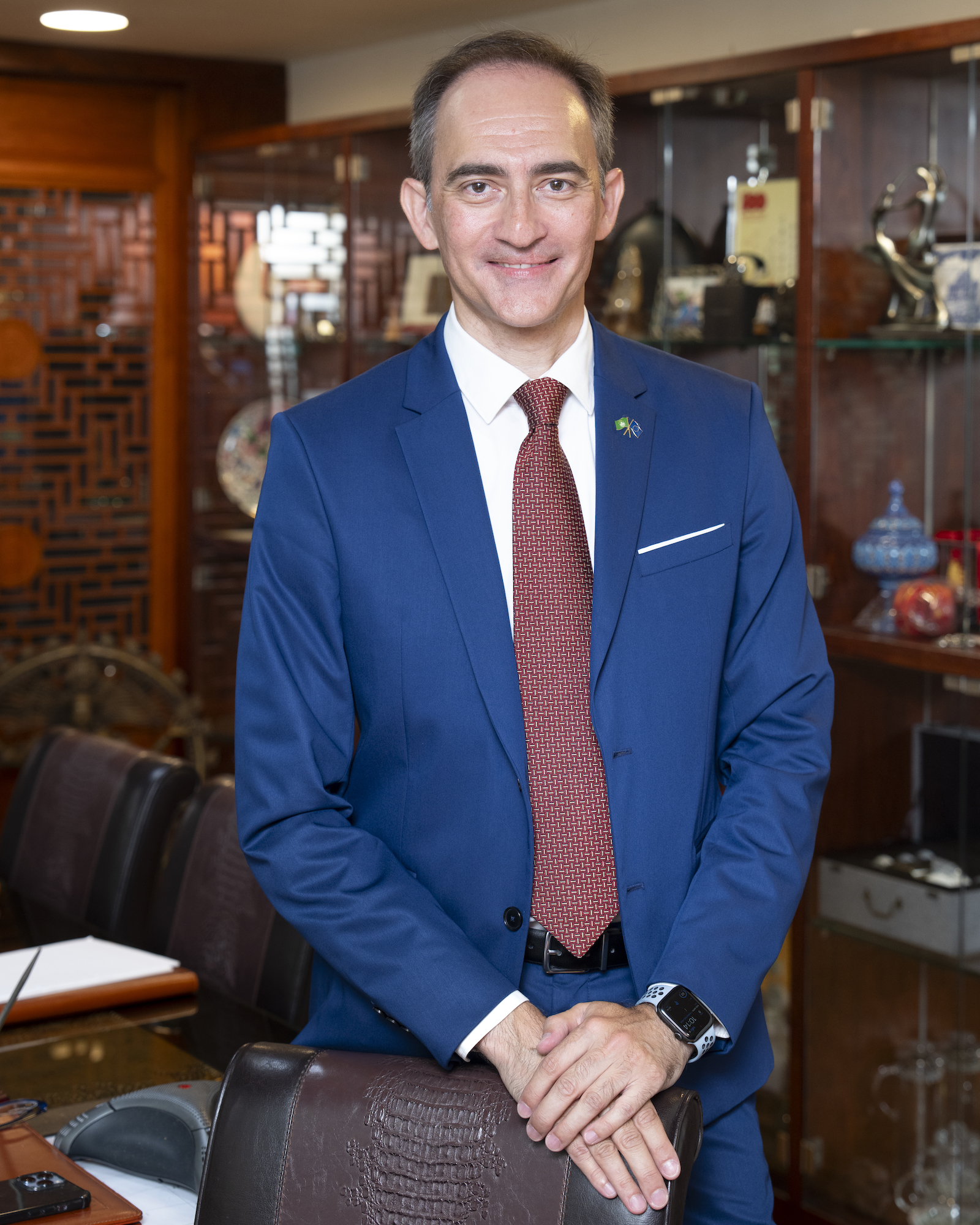
Tell us about your annual events.
The annual gala dinner is our main fundraising event. That’s how we get the money to function throughout the year. It’s also an opportunity to get business and government leaders together for a nice, elegant evening where we exchange ideas.
We also have our Anniversary Cocktail.
This year, in late November, that event will celebrate the MECC’s 10th anniversary and it will be a bit bigger than what we usually do. It’s an unpaid event. All the members of our various chambers are invited, and usually government officials, representatives from European offices in Hong Kong and Macao, and consul generals attend, too.
How are calls to diversify the economy and develop the Greater Bay Area affecting business?
Macao has been talking about diversifying the economy since the late ’80s, early ’90s. But now there’s clearly a will to take the necessary steps to do it. Diversification doesn’t happen because of a decree, however. It happens when the private sector finds suitable conditions to open new businesses that are not related to gaming.
Now, Macao is taking steps to facilitate the hiring of non-resident workers to make it easier for them to work here. And there’s deep cooperation between Macao and the mainland happening around the development of Hengqin, for example – to get it ready for foreign businesses to enter. Lately, we’ve been working with the executive committee of Hengqin. They’ve been very welcoming.
Cooperating with Hengqin is a very intelligent way to integrate Macao into the Greater Bay Area. One of the best things Hengqin offers is space. Macao doesn’t have space to build factories or large office buildings. European businesses are starting to explore what benefits are available to those that set up shop in both Macao and Hengqin, especially those in the sectors highlighted in the “1+4” [economic diversification strategy].
Tell us about the Rui Cunha Foundation.
The foundation has two missions. The first is to support the legal sector. When Macao’s handover from Portuguese to Chinese administration took place, laws had to be developed and adapted to the new environment, and not too many people had experience doing that. Therefore we put together seminars and conferences and launched books related to law. We have quite a big library of Portuguese law books that cover what legislation was in place before the handover. That’s useful to understand the concept behind Macao’s laws and to enable better quality laws to be developed.
The second mission is to support culture, especially young artists which were being left behind in the economic boom that was taking place. The foundation has been very active since it was founded 11 years ago. We’ve hosted more than 1,500 events. We have exhibition openings almost every two weeks, so that local artists have more opportunities to display their work downtown. We also host seminars on different subjects that are relevant to the community. And we are always open to new ideas. If someone would like to talk about a certain subject, we help organise the discussion at the foundation headquarters.
My father created the foundation to give back to Macao for the prosperity that his work in the SAR gave him, and me and my sister, as co-founders, supported him all the way.
When you aren’t working, what do you do to unwind?
One thing I love to do is dance. I’ve been dancing salsa for more than 20 years. When I moved here, I couldn’t find a place to dance, so I was going over to Hong Kong at least once a month to do it. Eventually, I got tired of going to Hong Kong, so I started teaching in Macao. We had quite a following before the pandemic. There were about 30 people joining the parties, some of them professional dancers from the resorts. But many left during the pandemic, so now we have to start from scratch. With all the responsibilities I have right now, I’m not sure I have time to lead two classes every Saturday afternoon [like I did before the pandemic], but I would love to see that community grow again.
